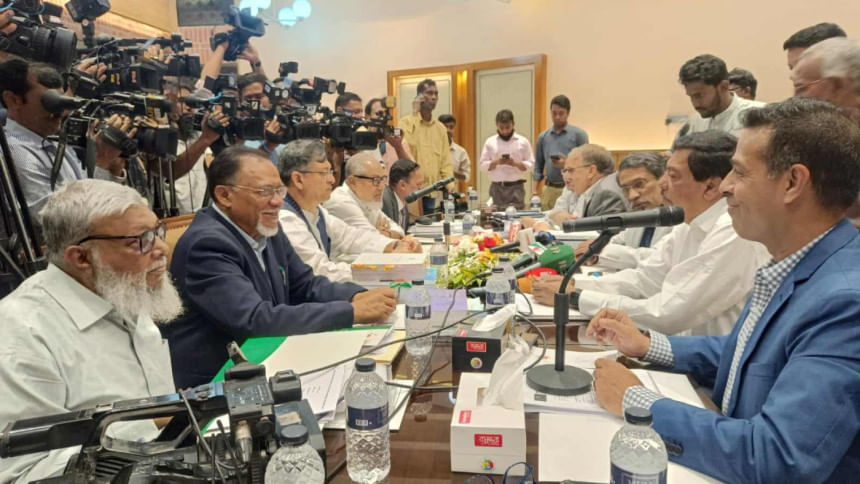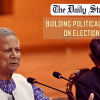BNP committed to reforms, not against: Nazrul

BNP Standing Committee Member Nazrul Islam Khan today said that the party is not against reforms but is, in fact, committed to the process of reform.
He made the remarks while delivering the opening speech this morning during a dialogue with the National Consensus Commission at the LD Hall of the Jatiya Sangsad Bhaban.
"Some people make various comments, but when they hadn't even uttered the first word of 'reform', it was BNP Chairperson Begum Khaleda Zia who initiated Vision 30. Even before many others thought of reforms, Shaheed President Ziaur Rahman had already announced a 19-point programme. Through discussions with other political parties, we announced a 31-point reform agenda," he said.
He added that they had made it clear that if anyone could come up with better proposals, BNP would gladly welcome them.
"We are viewing the work of the reform commissions from that perspective. We have already submitted some reform proposals, and more good proposals are coming in. We will consider those and adopt the ones that serve public interest," he said.
He emphasised that the 31-point programme proposed by BNP is both a declaration and a commitment.
"Even if the National Consensus Commission does not prepare a formal charter, the BNP already has one -- the Charter of Reform. So, we are clearly in favour of reforms," he said.
Nazrul Islam further said that his party believes the proposals coming from the commission are being made in good faith.
"It's fine to aim for something better. But in striving for that, we must not waste time to the extent that people's desire for change fades," he said.
"Reform is an ongoing and inevitable process -- it must happen, and it will evolve with time," he added.
He also mentioned that they had asked the chief adviser the previous day if there was any political party that had undertaken more reforms than BNP.
"BNP has carried out reforms both politically and democratically. It has brought changes across the board," he said.
"We are cooperating with the commission in the hope that the opportunities created by the recent mass uprising can be utilised effectively."
Earlier, while opening the dialogue, Prof Ali Riaz said the aim of this discussion is to formulate a national charter that will lay the foundation for a permanent democratic system in the country.
"Time and again, democracy in our country has stumbled. To prevent such setbacks in the future and to give institutional form to the long-standing struggle of political parties in Bangladesh, we are holding these dialogues," he said.
He expressed hope that through continued dialogue, a consensus can be reached that will enable the country's democracy to be institutionalised and constitutionally secured for the future.
He also said that consensus has already been reached with the BNP on many issues, and expressed optimism that the remaining disagreements can be resolved through further discussion.

 For all latest news, follow The Daily Star's Google News channel.
For all latest news, follow The Daily Star's Google News channel. 










Comments